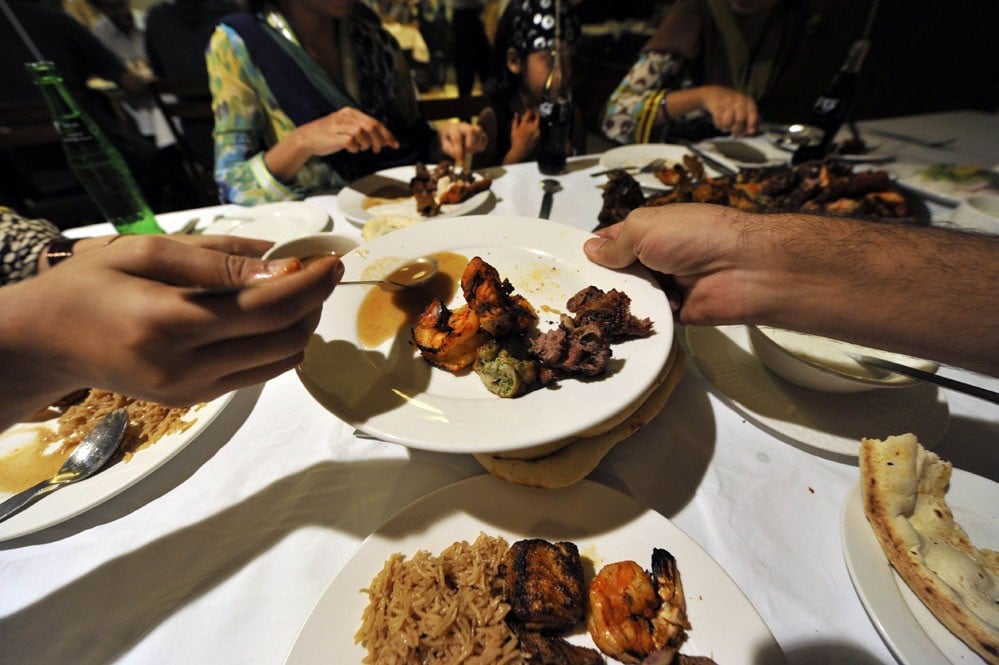
Somewhat oxymoronically, Pakistan ranks in the world’s top ten for both obesity and undernourishment

The relationship between Pakistanis (particularly the Punjabis) and food is a long-established one. All of us in Lahore know that Lahoris love to eat. They will generally eat anything they can find, at any time of the day or night, and with great relish. But somewhat oxymoronically, Pakistan ranks in the world’s top ten for both obesity and undernourishment.
Pakistan’s impressive finish of 9th amongst the world’s most obese nations, according to medical experts, can probably be attributed to our voracious appetites for delicious samosas, spicy biryani, and mouth-watering ras-malai, to name only a few.
A recently conducted National Nutrition Survey reports that one in every four Pakistanis suffers the life-threatening disease of diabetes, and the country has the highest burden of the disease in the region. On top of this, we can guess there are probably tens of thousands of undiagnosed diabetics in a country where only a small number regularly visit a trained medical practitioner.
Even more worryingly, there have been findings suggesting obesity is on the rise among children and adolescents, as well as a 2017 Aga Khan University Hospital study that found that in 106 districts of the country, more women of reproductive age were overweight than underweight, which often complicates pregnancies.
Then there is the other side of the spectrum. In a country of contrasts, where there is an ever-widening chasm between the opulent lifestyles of the privileged and that of the majority just barely meeting ends, a plethora of even more terrible scenes can be witnessed. There are stunted and wasted children, their faces gaunt, their straw-coloured hair showing they have been stripped of vital nutrients from a very young age, and their pot-bellies reminding us of victims of famine from the food-starved regions of Sub-Saharan Africa. Yet, Pakistan has plenty of food resources. They are simply not divided justly. The result is that over 45 per cent of children are, according to official figures, stunted or unable to reach the expected height for age. Over 15 per cent are wasted, or below the expected weight for age. This also has an impact on their mental development.
The reasons are embedded in a host of factors. In too many households, there is simply too little money coming in to buy adequate food. Rising food prices add to this, and the consumption of healthy foods like fruits and vegetables has fallen drastically. Besides, Pakistan has the lowest rate of breastfeeding in South Asia, with a 2013 survey showing only 18 per cent of newborns are breastfed immediately, and fewer than 40 per cent are exclusively breastfed for the first six months, depriving the babies of essential nutrients in favour of heavily marketed infant formulas.
The relationship with food at all levels is then in trouble. It is heartening to see our new Prime Minister take note of the issue of nutrition in his inaugural speech, and we hope that urgent measures will be implemented to rescue our people from the multitude of problems that follow unhealthy eating, whether those are linked to obesity, undernourishment, or a lack of vitamins and nutrients.